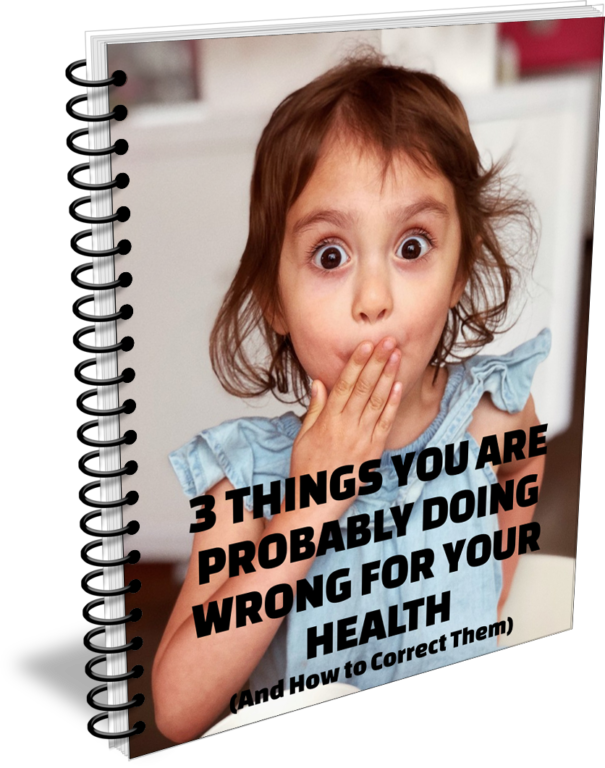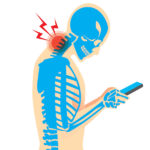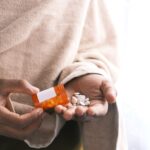Can you worry yourself sick?
And conversely, can you think yourself well?
Many of us may have been told at one point or another that we can worry ourselves sick.
Some may see this warning as an old wives’ tale while others may see it as common sense that someone under stress may be more susceptible to being sick or ill. However, recent evidence suggests that this phrase is actually much more accurate and profound than you may have thought.
We now have significant evidence that certain mindsets can impact our immune system and thus our body’s ability to fight disease.
A study of 7,000 people found that those with health anxiety had a 73% increased risk of heart disease. Many studies over the years have also found associations between chronic stress and cancer progression.
What’s Going On In Your Brain?
Recently researchers discovered a new pathway in our brain which effectively allows our brain to turn thoughts into illness.
This pathway originates in the cortex of the brain and extends to the hypothalamus.
The cortex is involved with higher-level processes such as thinking, perception, and memory.
The hypothalamus controls more basic processes such as temperature regulation. This part of the brain regulates many of the behaviors we associate with sicknesses such as increased sleeping, decreased appetite, and fever. Therefore, this pathway allows the conscious part of the brain to activate the area of the brain that controls the subconscious processes involved with sickness.
The idea that our thoughts can control our physiology is not a new concept. We know that thinking about something stressful or exciting can increase our heart rate, but this study takes this idea to a new level.
Researchers found that when they exposed rats to psychological stress, they were able to activate this pathway and actually induce a fever.
Turning Thoughts Into Health.
But if we can turn thoughts into illness or being sick, can we also turn thoughts into health?
We know that positive expectations can lead to healing.
This is called the placebo effect. Patients who believe they are receiving a beneficial treatment often get better even if the treatment they are receiving is not actually beneficial.
More profound than this is the fact that critically ill people such as cancer patients that report a sense of hope or positive outlook about the future actually have higher rates of recovery than those who do not.
Positive expectations activate the reward pathway of the brain.
This pathway is regulated by the neurotransmitter dopamine.
Neurotransmitters are the molecules that our nervous system uses to communicate.
Dopamine is released in anticipation of a reward, guiding motivation and behavior. It also happens to be an important regulator of the immune system.
Through this interplay between the nervous and immune systems, positive thoughts can actually stimulate our body’s ability to fight disease.
A team of researchers put this hypothesis to the test. When they stimulated the reward pathways in mice infected with bacteria, they found that the immune cells in these mice were more effective at killing the bacteria.
In a second study, they looked at mice that had two different types of cancer. When they activated the reward pathway, they were able to reduce the size of the cancerous tumors.
These studies show that activation of the reward system of the brain enhances the body’s ability to fight disease.
Think Yourself Well.
A growing body of evidence now demonstrates that we have the ability to both think ourselves ill and think ourselves well.
There is proof of specific neural pathways that serve as our mind-body connection, allowing our thoughts to either make us sick or trigger our body to fight infection and disease.
With stress and anxiety on the rise especially concerning health and disease, now is a better time than ever to focus on your mindset.
A positive outlook and expectations may be the thing that makes a difference.
Click below for other strategies for better health.
REFERENCES:
https://hubermanlab.com/using-your-nervous-system-to-enhance-your-immune-system/
Kataoka N, Shima Y, Nakajima K, Nakamura K. A central master driver of psychosocial stress responses in the rat. Science. 2020 Mar 6;367(6482):1105-1112. doi: 10.1126/science.aaz4639. PMID: 32139538.
Ben-Shaanan, T., Azulay-Debby, H., Dubovik, T. et al. Activation of the reward system boosts innate and adaptive immunity. Nat Med 22, 940–944 (2016). https://doi.org/10.1038/nm.4133
Ben-Shaanan, T.L., Schiller, M., Azulay-Debby, H. et al. Modulation of anti-tumor immunity by the brain’s reward system. Nat Commun 9, 2723 (2018). https://doi.org/10.1038/s41467-018-05283-5
Berge LI, Skogen JC, Sulo G, et alHealth anxiety and risk of ischaemic heart disease: a prospective cohort study linking the Hordaland Health Study (HUSK) with the Cardiovascular Diseases in Norway (CVDNOR) project BMJ Open 2016;6:e012914. doi: 10.1136/bmjopen-2016-012914
Moreno-Smith M, Lutgendorf SK, Sood AK. Impact of stress on cancer metastasis. Future Oncol. 2010;6(12):1863-1881. doi:10.2217/fon.10.142
Dr. Derek Gallant
Dr. Derek Gallant has committed himself to helping others live the best life possible. After graduating from Wesleyan University, he received his Doctor of Chiropractic Degree from Life Chiropractic College West where he finished 2nd in his class. He is the owner of Beverly Family Chiropractic and co-founder of The Well Family Foundation. Dr. Gallant is certified through the International Chiropractic Pediatric Association (ICPA) in the Webster technique, an analysis focused on assisting pregnant women in a healthy pregnancy and natural birth. He has inspired thousands of people to take control of their own health using the Life By Design method. Apart from full time practice you can find Derek at the parks and coffee shops around Beverly with his family, training hard at the gym, or at the beach surfing.








